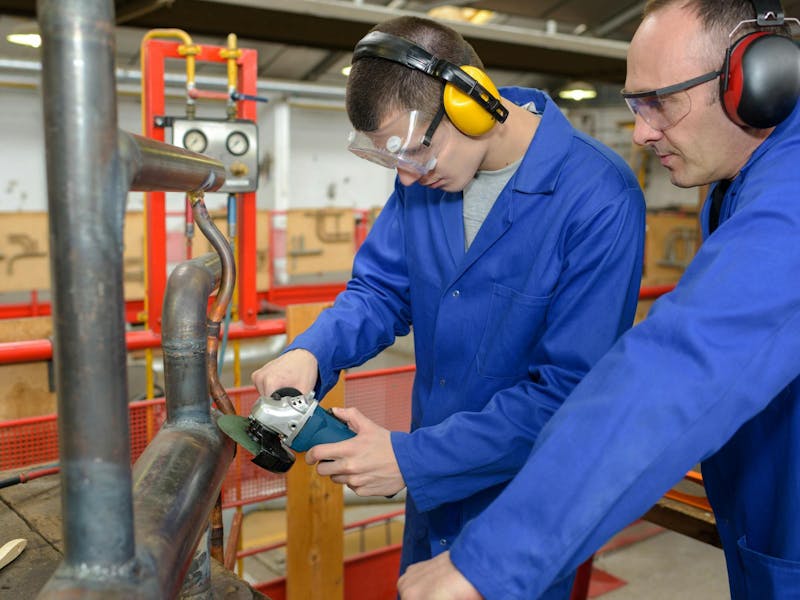How to protect your hearing at work

A life in the trades often involves spending long periods around loud equipment or in noisy work environments. Our recent research found that this is taking its toll, with one in five (21%) tradespeople experiencing hearing problems.
Sadly, symptoms appear to begin early on in trade careers, with almost half (49%) of 18-34-year-old workers already having trouble hearing.
With this in mind, we’ve partnered with Nic Wray, Communications Manager at Tinnitus UK, to discuss the importance of protecting your ears while working, and the potential consequences of not doing so.
Why you should protect your ears
Nic says: “Protecting your hearing is very important. Exposure to loud noise can damage your ears, leading to hearing loss and tinnitus. Once the damage has been done, it cannot be repaired, only managed.
“Tinnitus affects one in seven adults in the UK (7.6 million people), with severe impact on one in six of those living with the condition. No known cure exists, and dissatisfaction with current treatments is widespread.”
Symptoms of hearing problems
Nic says: “Noise starts to become a risk to hearing at 80 decibels (dBA) and in a working environment, hearing protection should be provided at 85 dBA or above. Sounds over 85dBA can damage your hearing – the safe listening time is cut in half for every 3dBA rise in noise levels over 85 dBA.
“But most people don’t carry a sound level meter with them (although there are some pretty good apps out there if you want to have one with you!) so how can you know if noises are too loud and could lead to tinnitus?”
Here are some signs:
- You have to raise your voice to be heard
- You can’t hear or understand someone one metre (three feet) away from you
- Speech around you sounds dull or muffled if you move away from the noisy area
- You have pain in your ear, or perhaps a headache, after you hear the noise
- You have sounds in one or both ears, or your head, that have no external source. These could be ringing, buzzing or whistling. This is tinnitus. It may only last a short time, but it could persist.
How to protect your hearing while at work
Nic says: “Being aware of the problems that loud noise can cause, and the steps you can take to protect yourself, is vital.
“Your employer has a duty to protect you and should be taking steps to reduce the risks caused by a noisy environment or noisy equipment. If you are self-employed, you must ensure that your work does not put you or others at risk.”
You should:
- Co-operate with your employer to do what is needed to protect your hearing
- Wear any hearing protection given (or obtain and use hearing protection if you’re self-employed). Training should be given on how to do this properly.
- Get the right type of protection and with the right levels of sound reduction
- Keep your hearing protection safe, clean and in good condition
- Take regular breaks in a quiet(er) location
- Drink lots of water – staying hydrated is essential for ear health
- Have your hearing checked regularly – many High Street providers offer free hearing tests, or your GP can arrange one for you.
It’s crucial that tradespeople keep themselves safe while working. Visit our Safety range for everything you need to protect yourself, including a wide variety of PPE.
